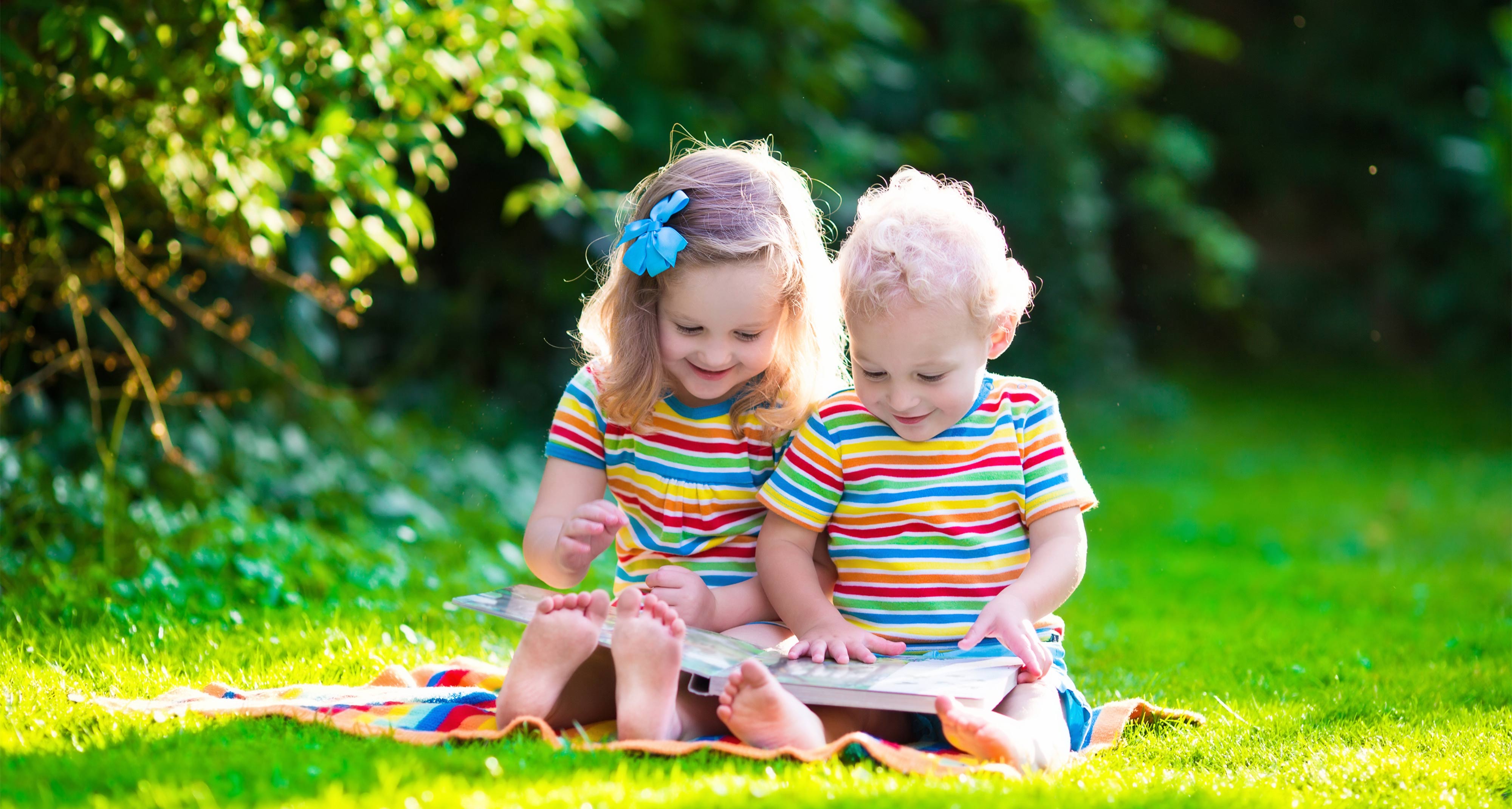The Importance of Early Literacy
5 min read
Last Modified 15 March 2024 First Added 6 March 2024

Reading and writing are two of the most important skills that your child can learn in their early years. Attaining literacy means learning to read, write and comprehend written and spoken words, supporting social development. Literacy also forms the basis of formal education.
From birth, children are pre-disposed to learn and adopt language. Our brains are wired to pick up on sounds and begin to decipher them from a young age. Babies will start their language journey with very early mimicking of caregivers sounds, babbling and beginning to associate words with actions. Later, as their brain develops further they begin to understand basic words, turn-taking in conversation and the correlation between printed letters on a page and their associated sounds.
In 2022, primary teachers in the UK report that only 54% of children starting reception were developmentally ready to begin school. Even when leaving primary school, 41% of year 6 pupils are not meeting the expected standards in literacy and maths. Supporting your child with an early introduction to books and reading will help them to start school with a deeper understanding of language and set them on a lifelong path of excitement about learning.

Literacy empowers children to express themselves, share their ideas, and advocate for themselves. Language in all forms is essential for our brain’s development and critical thinking ability. It supports a variety of cognitive functions as well as a child’s social development. It also benefits your child in a range of other ways:
Literacy skills form the basis for all learning. Children who are literate from an early age are better equipped to succeed in school as they can understand instructions, comprehend textbooks, and communicate effectively.
Literacy promotes critical thinking and problem-solving abilities. By being able to read and analyse information, children can develop cognitive skills, make informed decisions, and think creatively.
Literacy skills are essential for effective communication and social interaction. Being literate allows children to engage in conversations, build relationships, and participate in group activities with their peers.
Literacy is a gateway to countless opportunities in life. Whether it’s pursuing higher education, securing employment, or simply enjoying the pleasure of reading, strong literacy skills open doors to a brighter future.

You don’t need to spend a fortune on resources to be able to support your child’s early learning. Everyday life provides a raft of opportunities to begin teaching the importance of literacy and with a little extra imagination, it’s possible to create learning opportunities that will benefit your child in the short and long term.
From newborn onwards, playing with and ‘reading’ books is both beneficial and fun. Chose books with high contrast pictures to capture very young one’s attention. For toddlers and older, flaps, sounds and textures on the page can be enthralling for those getting to grips with learning words. Let them try holding books and page-turning, a great reason to invest in some study board books that won’t get torn by enthusiastic little hands – try our Wooden Picture Book for an indestructible place to start!
Our environments are saturated with print, from advertising and signposts to menus and instructions. Pointing out familiar words, eye-catching signage and colourful graphics offering your little one the chance to get familiar with and begin to recognise the basic indicators of written language.
Early mark-making helps to enhance fine motor skills and hand-eye coordination. Through drawing and scribbling, they can express their thoughts, feelings, and ideas in a visual form. This foundational skill is crucial for later tasks like writing, drawing, and using technology.
The word of literature offers a huge opportunity to grow their vocabulary, expand their imagination and introduce new cultures and concepts. From early books focusing on simple ideas to classic children’s stories that can be enjoyed across generations, regularly reading to your child is one of the very best ways to help them develop early literacy skills. Try our ideas for interactive storytelling – part of our Learning To Read skill series.
Once your child begins to learn to communicate effectively, the opportunities for developing their language and literacy skills grow further. Make reading and discussion part of your routine, either through daily bedtime stories or during other wind-down moments. Asking questions about the characters, discussing themes or asking for predictions about what might happen next are all great ways to get your child thinking and working out whilst you are reading together. Familiar stories, funny poems and lots of rhyme and repetition create fun bonding moments and instils a love for reading in children from an early age, fostering their academic success and nurturing a lifelong passion for learning and exploration.
To read our disclaimers, please click here.